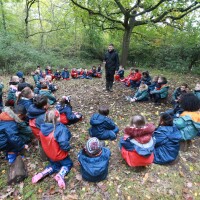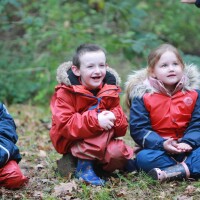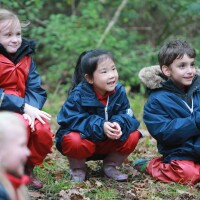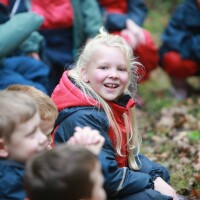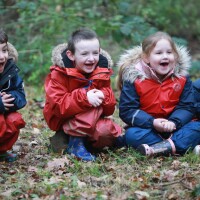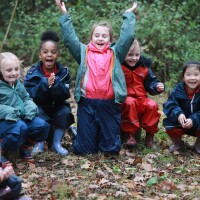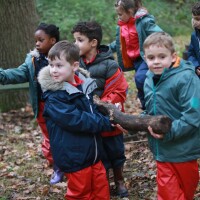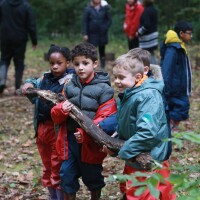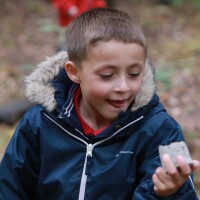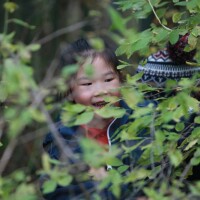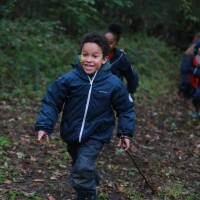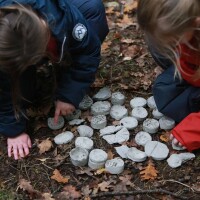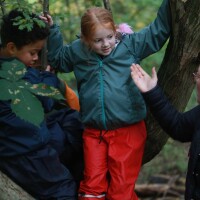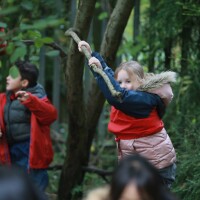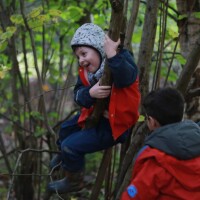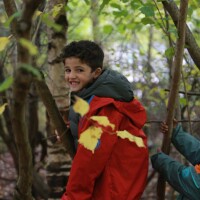Forest School
Children in EYFS, Year 1 and Year 2 regularly visit our first school. By participating in Forest School activities we see children benefit in many ways:
- Health and fitness; Being active in an outdoor, natural environment. Increased emotional wellbeing.
- Social development; Communicating and negotiating with peers and adults to solve problems and share experiences.
- Skills development; Developing fine and gross motor skills and co-ordination for real purposes.
- Gaining knowledge and understanding; Multi–sensory, real-life learning. Individualised learning; Careful observation allows adults to tailor support to children's own interests and stage of development.
- Curriculum Links; Forest Schools supports many areas of the curriculum and enhances the learning taking place in the classroom.
What do we do on a Forest School day?
Children prepare to go out by dressing in outdoor waterproofs and wellies, waterproofs are provided by the school. The class then walk to the Forest School site which is situated in a corner of the school grounds.
Forest School runs all year round and in all weathers (unless weather conditions are dangerous). The child led ethos of Forest Schools means that once at the site the children can choose what to participate in, carefully supported and encouraged by trained adults. Often though, an initial input and activity, linked to the learning in the classroom, will be shared upon arrival which children are encouraged to participate in.
Possible activities may include:
- Hunting for mini-beasts or building animal shelters.
- Natural crafting eg. making necklaces from elder, crowns from willow and collages from natural materials.
- Making mud sculptures.
- Shelter building and knot tying.
- Tree climbing.
- Using tools for a purpose – such as peeling bark from sticks with peelers to make toasting forks, using a penknife to create a stick man and using a bow saw and bill hook to create mallets for use in their shelter building.
- Fire building and cooking on a camp fire.
Activities are planned around the individual and group needs and built upon each session.
All Forest School Leaders are qualified through nationally recognised and accredited training, therefore ensuring Forest Schools is a safe high quality learning experience.
The earlier sessions will concentrate on safety; establishing boundaries and routines. As the children develop in confidence and familiarity with the environment the sessions focus on the development and consolidation of skills and understanding through both activities, tool use and open fire cooking.


